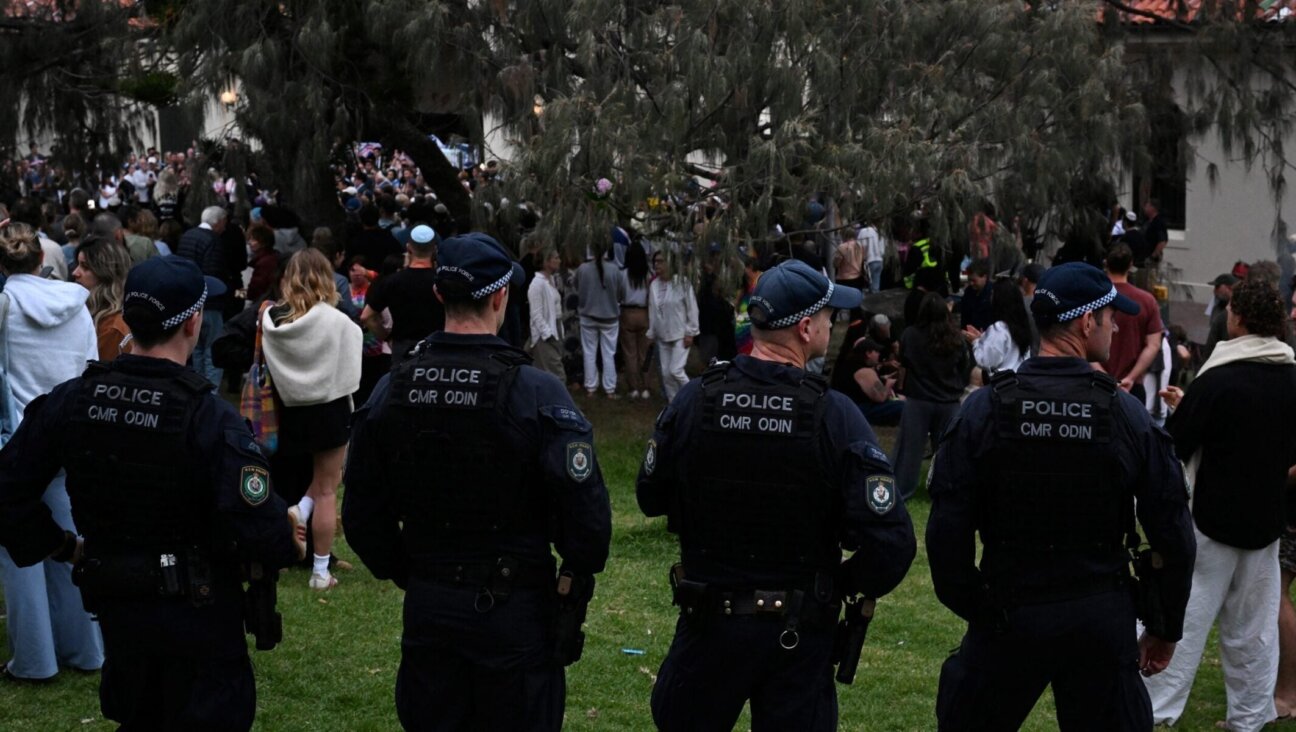Israel Nervous About Possible U.S. Cooperation With Iran

Uncertain Future:Iraqi boy and tribesmen hold up their weapons to join Iraqi security forces in the fight against Jihadist militants. Image by Getty Images
Israel voiced concern on Monday at the prospect of its closest ally, Washington, cooperating with its what it considers its deadliest foe, Iran, to stave off a sectarian break-up of Iraq.
But, Israeli Strategic Affairs Minister Yuval Steinitz told Reuters, the United States and other major powers have pledged that any such cooperation would not set back their drive to curb Tehran’s nuclear program.
The Obama administration said on Sunday it was considering talks with Iran about the Iraqi crisis. Iranian officials have voiced openness to working with the Americans in helping Baghdad repel a Sunni Muslim insurgency.
While deploring the “ungodly horror” of the bloodshed in Iraq, Steinitz said Iran should not be helped to extend its sway in Iran where fellow Shi’ite Muslims form the majority.
That, he said would give Tehran an arc of control running through Syria, where the Iranians back embattled President Bashar al-Assad, and on to Lebanon, where they have powerful allies in the Hezbollah militia.
“And we would especially not want for a situation to be created where, because both the United States and Iran support the government of (Iraqi Prime Minister Nuri) al-Maliki, it softens the American positions on the issue which is most critical for the peace of the world, which is the Iranian nuclear issue,” Steinitz said in an interview.
Even before the Iraq crisis, Israel was concerned about Iran’s nuclear talks with Washington and five other powers, aimed at ensuring Iran is not developing atomic weapons capability.
Israel fears Tehran would be able to shake off international sanctions built up over the last decade.
SEPARATION
Steinitz was cautiously optimistic that the negotiations would be unaffected by any international involvement in Iraq.
“We are troubled, but we have been made to understand by everyone – the Americans and the British and the French and the Germans – that a total separation will be enforced,” he said.
Steinitz said such a separation of policies would be similar to Russia’s participation alongside Western powers in the Iranian nuclear talks even as it spars with them over Ukraine.
Neither Washington nor Tehran, old adversaries with often contrary interests in the Middle East, have articulated how they might cooperate in Iraq.
Washington has no appetite to send troops back to the country it occupied for almost a decade, but the Obama administration has suggested it could carry out air strikes against insurgents.
Steinitz, who regularly confers with the United States about the Iranian nuclear negotiations and other regional issues, said he did not know what actions the Americans might take in Iraq.
Western diplomats suspect Iran has in the past sent some of its Revolutionary Guards, an elite force separate from the regular army, to train and advise the Iraqi army or allied militia. During its occupation of Iraq, the United States said some attacks on its forces had Iranian help.
Iran says it has never sent forces to Iraq but might now assist the Maliki government with advisers and weaponry.
Another Israeli security official, who spoke to Reuters on condition of anonymity, said deeper Iranian commitment in Iraq could make Tehran more accommodating in the nuclear talks as it might feel over-extended and reluctant to spark further crises.
“They would have to redirect resources, perhaps even pull their forces out of Syria to send to Iraq instead,” the second Israeli official said. “Let them sink into that new quagmire.”
Steinitz rejected this view, however, saying: “I would never look to solve one travesty with another travesty.”
















